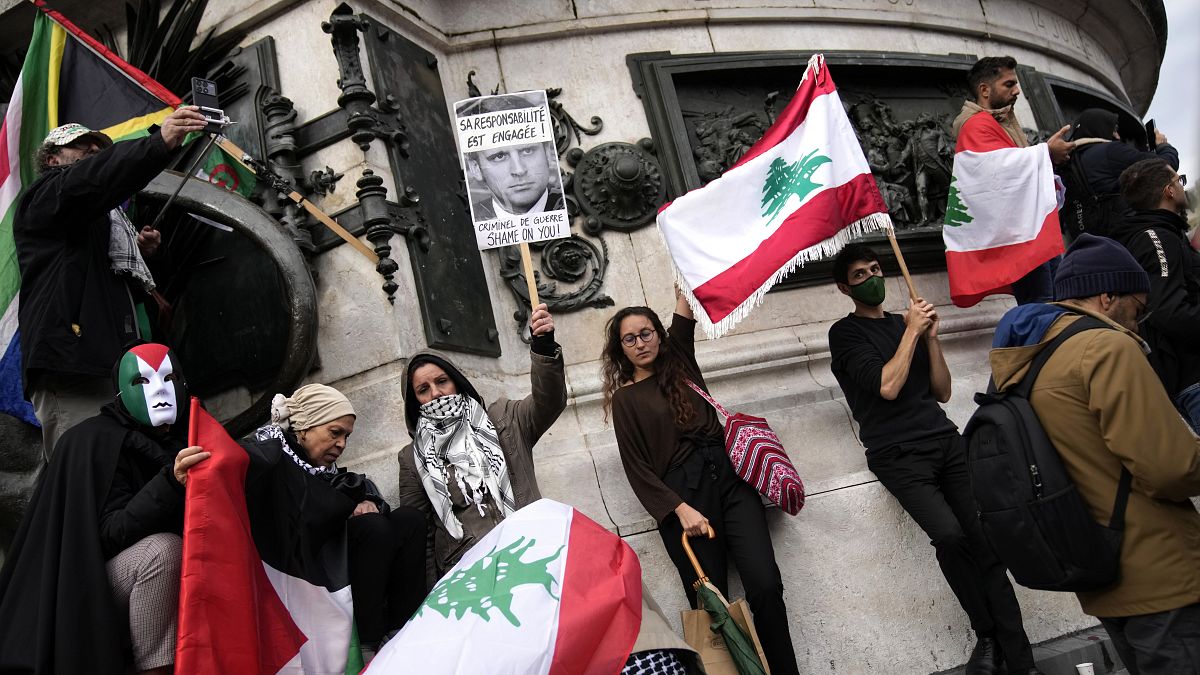France has been a key supporter of Israel for years, defending its right to self-defense and selling an average of €20 million worth of military equipment to the country annually. However, hundreds of protesters in Paris have recently taken to the streets to call for an end to Israeli air strikes in Lebanon. These rallies were held in response to the deaths of at least 24 people and injuries to 29 others in strikes on two buildings in the city of Sidon. The Lebanese militant group Hezbollah has also suffered losses, with seven senior leaders killed in Israeli strikes within a little over a week.
The protests in Paris aimed to show the unity of the Lebanese people, with participants from various political backgrounds coming together to support and defend their country, Lebanon. The situation between Israel and Hezbollah has escalated, with almost daily exchanges of fire since the conflict in Gaza began in October. This has resulted in the displacement of tens of thousands of people on both sides of the border. Furthermore, Israel has increased its aerial assault on Lebanon, with more than 700 people killed in the past week alone. The movement of Israeli troops near the northern border has raised concerns about a potential ground offensive.
Despite the recent protests and escalating violence, France has continued to support Israel’s right to self-defense. A report from the Defence Ministry revealed that France had issued 767 export licenses to Israel since 2015, allowing for the sale of military equipment. The country sells an average of €20 million worth of such equipment to Israel each year, demonstrating a strong economic relationship between the two nations. In response to this, 11 NGOs in Paris, including Amnesty International, filed a court case to stop France’s arms sales to Israel in April. However, the court rejected this request in May, allowing the sales to continue.
The conflict between Israel and Hezbollah has led to significant casualties and the loss of key figures within the militant group. The ongoing violence has prompted international concern and calls for a peaceful resolution to the crisis. France’s support for Israel’s right to self-defense has faced criticism from some advocacy groups, who argue that the military equipment sold to Israel is being used against civilians in Gaza and Lebanon. Despite this, France has maintained its position and continued its arms sales to Israel. The situation remains volatile, with ongoing airstrikes and the threat of further escalation in the region.








